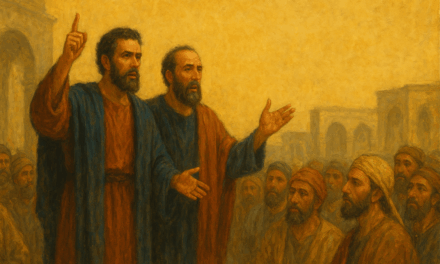1 Corinthians 15:41-50
There is one glory of the sun, and another glory of the moon, and another glory of the stars; for star differs from star in glory. So is it with the resurrection of the dead. What is sown is perishable; what is raised is imperishable. It is sown in dishonor; it is raised in glory. It is sown in weakness; it is raised in power. It is sown a natural body; it is raised a spiritual body. If there is a natural body, there is also a spiritual body. Thus it is written, “The first man Adam became a living being”; the last Adam became a life-giving spirit. But it is not the spiritual that is first but the natural, and then the spiritual. The first man was from the earth, a man of dust; the second man is from heaven. As was the man of dust, so also are those who are of the dust, and as is the man of heaven, so also are those who are of heaven. Just as we have borne the image of the man of dust, we shall also bear the image of the man of heaven. I tell you this, brothers: flesh and blood cannot inherit the kingdom of God, nor does the perishable inherit the imperishable.
Paul is a very logical writer. If you read through almost everything Paul wrote, his writings are often easily outlined into quite linear, logical arguments. He either asks questions or responds to predicted objections. For example, contrast Paul’s writings with John’s writings.
But before we can dig into verses 41-50 we have to look at the preceding section for context.
If you remember, chapter 15 begins with Paul addressing the issue that some people are saying there’s no resurrection of the dead. And Paul handles that issue in the first 19 verses convincingly.
Of course, the Holy-Spirit-inspired scripture does everything quite convincingly.
And then in 1 Corinthians 15:35, Paul anticipates a possible question that could be asked. Some commentators on this verse say that they think Paul might have a particular person in mind at Corinth who was saying these kinds of things. And we know there were a lot of problems at Corinth.

Side note: Even a church with a lot of problems is still a church in the eyes of God and He loves them. And the apostle Paul dearly loved them and was willing to lay out his heart for them. And so that’s something we should all remember—that we’ll be known by our love for one another. (John 13:35)
But the questions that Paul anticipates next are, “How are the dead raised? And with what kind of body do they come?” And he addresses those questions for several verses. The first question is asked, “How are the dead raised?” Paul is clear that this is a question that they may have heard—the question may have been batted around in the Corinthian church when they have small group discussions.
But Paul knows that this isn’t a legitimate question someone’s asking. There isn’t a person sitting there that honestly adores Jesus Christ and loves the Word of God and loves the Lord and is thinking to his or herself, “Huh, I’m not quite sure about the resurrection because, well, I just don’t know how the body will be worked out.”
Think about it: there are two basic ways to ask a question. You might have a legitimate question. The other way is that you are presenting an argument in the form of a question. That is, you could stand up today and say, “How is the body going to be raised? What kind of body will we have?” I might look at you and say, “You know, it sounds like you’re genuinely wondering.”
Because it’s clear that the reason you are asking is inquisitive; you are not simply making an argument against the resurrection!
But here, Paul is addressing the scoffer. He’s not addressing a person that is genuinely asking a question about the resurrection. So if you’re a person that thinks to yourself, “I wonder what kind of body we’ll have in the resurrection,” when Paul says, “You fool,” in the next verse, he’s not talking about you. He’s talking about somebody that’s making a rhetorical argument in the form of a question by saying, “Well, how is the body to be raised or what kind of body will we have?”
They think that by simply asking an unanswerable question, they have now discounted the resurrection and the truth of it. Now that can be applied in a lot of ways, and you’ll see it throughout our culture today. Here in the United States, we deal with a lot of scoffers. One of the common ways scoffers scoff is that they ask what amounts to an unanswerable question, or a question that’s extremely difficult for us to answer. And then they think that because we don’t know the answer, that there isn’t one.
Paul’s argument is effectively the same argument that he’s uses in 2 Corinthians 4 when he writes about how people become born-again by the word of God. He argues that the God who called everything out of nothing is going to be able to do whatever he chooses to do with our bodies. And we don’t have to be able to have an answer to that scientifically, because it’s a miracle. And secondly, we don’t have to know the answer for there to be an answer. That’s part of what faith is, right?
Paul argues that the God who called everything out of nothing is going to be able to do whatever he chooses to do with our bodies at the resurrection.
Faith isn’t blindly jumping off a cliff, hoping you’re not going to hit the ground and die. Faith is knowing that even though we don’t know the answers, we trust the One who does. We don’t need all the information. Some of you who were in the military have heard that phrase, “You’re on a need-to-know basis.” We are all on a need-to-know basis. And God knows everything and has the end worked out. This God has told us everything we need to know. So when there is mystery, we ought to embrace that by faith and trust that the answer isn’t necessary for faith and practice. It is enough to trust God with the mystery. He has given us everything we need for life and godliness in His Word; we should spend more time mastering that than speculating about what isn’t revealed. (Deuteronomy 29:29) It is enough to believe there will be a resurrection of the body.

We will continue looking into Paul’s arguments in a future post, stay tuned!
You can listen to the sermon I gave on these verses here






Robert, thank you very much for the kind words, brother. That sincerely means a lot to me that your spirit…